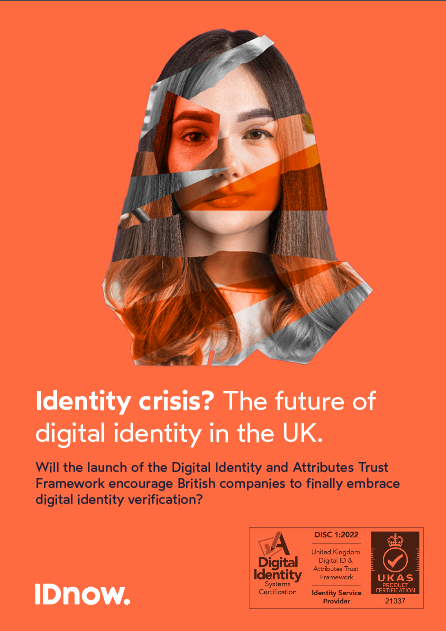IDnow sits down with global advisor and investor in digital financial services, David Birch to discuss the Digital Identity and Attributes Trust Framework, whether KYC is just a box-ticking exercise, and why regtech may become even more important than fintech in 2023.
Do you think the Digital Identity and Attributes Trust Framework does enough to reassure British people of the benefits of digital identities?
Well, I’m sure the British people have never heard of the Framework and probably never will. If the government proposes a national digital identity, then there many well be considerable resistance, especially if it is made mandatory. However, the idea of a bank identity, a social security identity, a health identity and so on is a different story. If these are interoperable with the framework, I am sure that they will be accepted.
Speaking of which, what do you foresee as some of the main benefits and advantages in the use of digital identities in the UK?
A smoother, simpler online life with considerable cost-savings and an actual improvement in security. Remember that fraud is the number 1 crime in the UK today. I read recently of the case of an airline pilot caught using forged documents. He was flying for two years for two major airlines before this was discovered. A working digital identity infrastructure would stop this, and a thousand similar frauds going on every day.
With the creation of a solution comes the inadvertent creation of a new problem, so conversely what are some of the major risks associated with a digital identity future in the UK?
As always: confidentiality, integrity and availability. That last point needs particular focus: If you need a digital identity to open a bank account, open your office door or open a bottle of wine, then the infrastructure better be there! It would become an obvious target for agents of foreign powers. I wouldn’t want to find that I can’t start my car in the middle of Wales because I can’t get online to a blockchain or because my mobile phone has run out of battery!
Identity crisis? The future of digital IDs in the UK.

What are some of the important things that service providers should look out for when choosing a digital identity solution provider?
At a high level, I would strongly distinguish between the provision of identification, authentication and authorization services. If you mean identification services, I would say the key requirement is for fully automated processing.
With Sanctions, AML/CTF, Fraud, and KYC departments often working in silos, how important is it for cross collaboration, especially in highly regulated markets?
I’m not an expert on the internal structure of financial organizations but to be honest I do see compliance and fraud as separate functions that respond to separate drivers. Organizations implement compliance because they are made to, whereas they implement anti-fraud measures because they want to.
KYC has traditionally been seen as a mere box-ticking measure, but considering how intertwined eKYC is with customer onboarding digital solutions, is that opinion set to change for both businesses and consumers?
KYC is a box ticking measure, that’s the point of it.
Will there ever come a time when a person’s digital identity becomes more valid, more secure, and more trustworthy than in-person validation?
We have already reached that point. You think the guy that asked to see my vaccine certificate at the airport today is an Israeli airport security-trained counterfeit documentation spotting genius? There is ample evidence that digital identity is more secure than analog identity. I saw a story in the newspapers recently about a guy who had taken his wife’s passport by mistake. It didn’t stop him from getting on the plane.
What are your predictions for the fintech and regtech space for 2023?
My top three would be: Firstly, for most of the companies I deal with, regtech has much more of an impact on the bottom line than fintech so with the economy going through difficult times, their focus will shift to cost-cutting via the former than new products or services via the latter; Secondly, that we will see the impact of open banking really begin to be felt as more and more embedded finance services (not all of them to do with money or payments) are launched; Thirdly, that the digital assets business (the tokenization of everything) will become mainstream and separate further from the “crypto” business.
Many predict that with the upcoming crypto regulations, including MiCA and TFR, 2023 will be the “coming out” year for crypto assets. How do you think the industry will react? Will regulation have a positive impact on crypto businesses and consumers?
I agree with this view, but as I noted above, I distinguish between the digital asset business and the crypto asset business. They may well be built of the same technology, but they are not the same thing.
As the UK will not have to comply with EU crypto regulations, will that place UK cryptos at an advantage in the marketplace?
You need to ask a lawyer! I have no real idea what either the EU or UK’s crypto regulations will look like. I will, however, point toward the law society of England and Wales recent work on “digital objects”: this seems to me to be a good foundation.
For more insights into the world of crypto, including 2023 trends, check out our Fintech Spotlight Interview with Jason Tucker-Feltham.
By

Jody Houton
Content Manager at IDnow
Connect with Jody on LinkedIn



